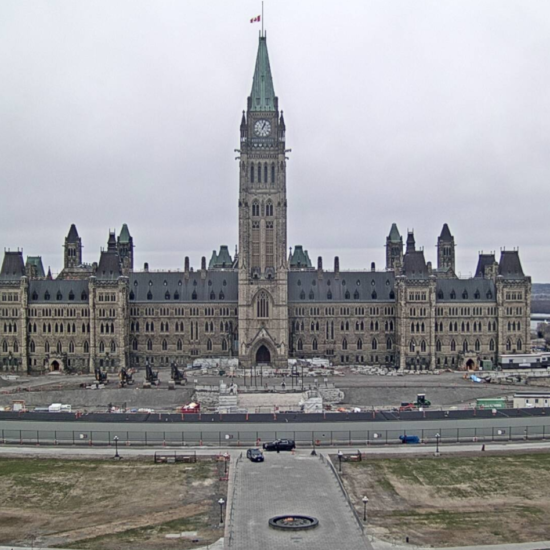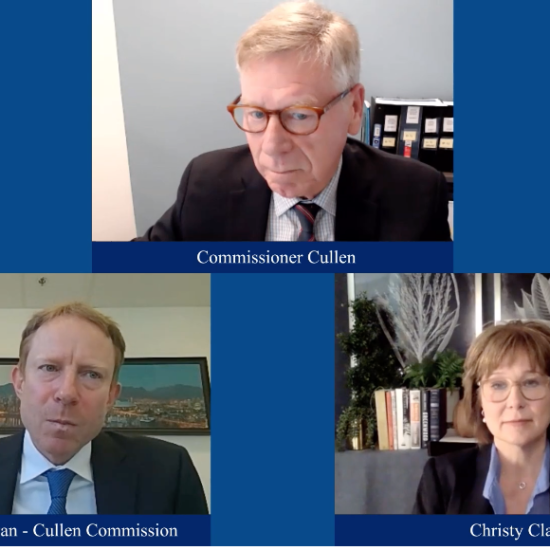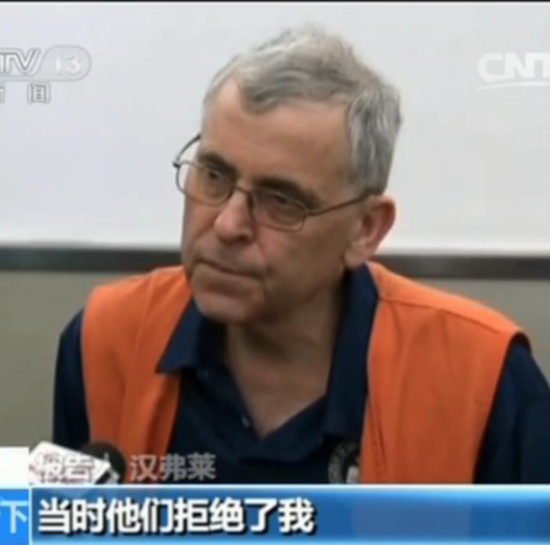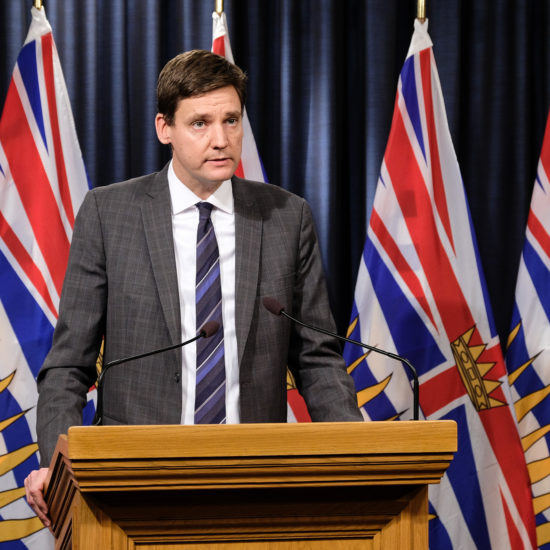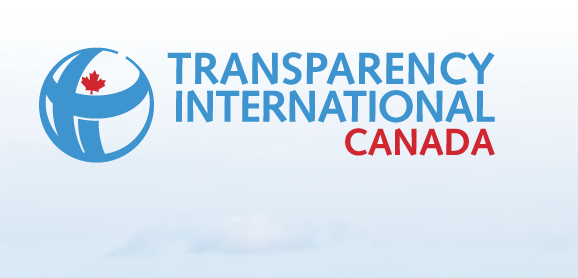
Bob Mackin
Western Canadians sense the most corruption among federal and provincial politicians and their parties, according to a survey released Dec. 13.
Transparency International Canada’s first Western Canada Corruption Barometer also found the public has more faith in the media than governments to root-out corruption.

Transparency International Canada report authors Mike Zajko (left) and Daniela Chimisso dos Santos
“In short, citizens feel the social contract is broken,” said Transparency International Canada’s chair Paul Lalonde and executive director James Cohen. “Respondents to the survey had low levels of expectations in the government’s ability to fight corruption. The anger that can stem from mistrust of public institutions needs to be acknowledged and addressed through responsive public policy and improvements to transparency and accountability in public institutions.”
The report, by University of British Columbia Okanagan professor Mike Zajko, analyzed the results of an August Leger poll of 1,207 people in B.C., Alberta and Saskatchewan.
The top three definitions of corruption among respondents were self-interest over public service (31%); abuse of power (21%); and bribes and kickbacks (19%). Near the bottom of the list were money laundering (2%); tax schemes (1%) and insider information (1%).
A slim majority (51%) perceive corruption to be a major problem, with 84% willing to report corruption and 54% willing to spread information on social media.
The media and non-governmental organizations were each trusted by 22% to fight corruption. Government (14%) and the private sector (6%) were least trustworthy.
Media coverage was a key source of information about corruption, though corruption ranked behind high prices, poverty, environmental damage, employment and security among major concerns.
“Western Canadians are exposed to media coverage of corruption occurring at the federal and provincial levels, and recall fewer stories concerning municipal government, which accounts for some of the difference in perceptions of corruption among these sectors.”
Perceptions also varied around the region. In B.C., 26% of respondents saw the oil and gas sector as “extremely corrupt,” compared to 19% in Alberta. In Greater Vancouver, 37% called the real estate sector “extremely corrupt,” versus 15% elsewhere in Western Canada.
Despite public outrage related to the intersection of high real estate prices, the opioid epidemic and casino money laundering, B.C. NDP Premier John Horgan has been noncommittal about ordering a made-in-B.C. judicial inquiry into corruption. During the NDP’s 2017 policy convention, members of his own party voted for an anti-corruption probe similar to Quebec’s Charbonneau commission.
A parallel survey of 100 oil, gas and mining executives found 63% do not consider corruption to be a big problem. They pointed to employees breaking rules as the most-common type of corruption. Like the general public, extractive industry executives considered government corruption-fighting efforts unsuccessful.
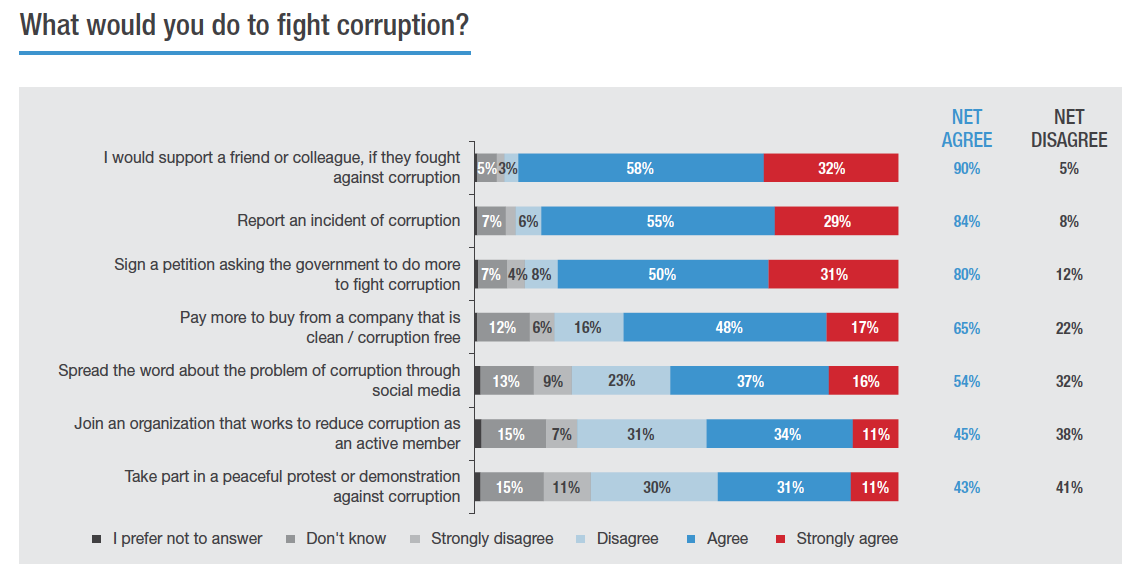
(TI Canada)
“Even though respondents do not believe corruption is a problem, executives acknowledge that the industry is marred with quid pro quo favours, and ‘friends of friends’ seem to have an advantage,” found author Daniela Chimisso dos Santos of Invenient Solutions Consulting.
Dos Santos was surprised that none of the executives interviewed knew about the Extractive Sector Transparency Measurement Act. The 2015 law requires reporting payments of $100,000 or more by Canadian oil, gas and mining companies to government-related individuals or entities with fines up to $250,000 per day of non-compliance. The law was expanded in 2017 to include payments to indigenous governments, though companies are not required to disclose all terms of agreements made with indigenous governments.
“As both the oil and gas and mining industries are struggling to recover from a long-bust period, corruption risk has taken a back seat to problems such as market volatility and the increase in environmental regulations,” dos Santos concluded.
The Western Canadian Corruption Barometer was released to coincide with TI Canada’s Dec. 13 Vancouver Day of Dialogue, featuring a keynote speech by Attorney General David Eby.
Support theBreaker.news for as low as $2 a month on Patreon. Find out how. Click here.






